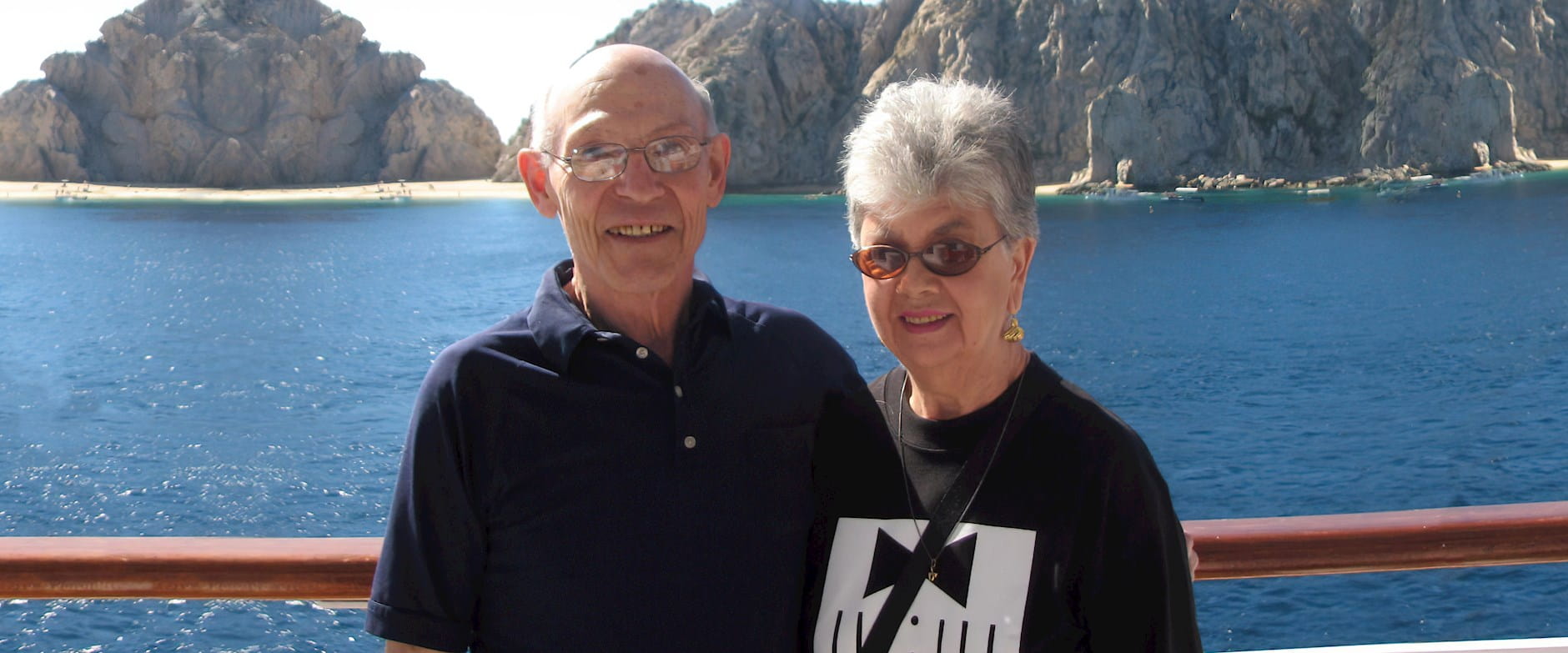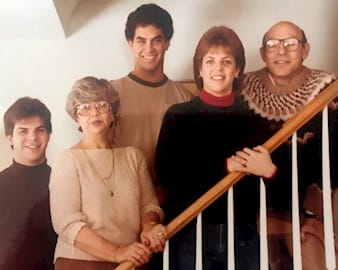
125 Years of Ideas, Innovation, and Impact
Join us in celebrating Booth’s 125th anniversary in 2023, and explore our unparalleled history of firsts.
125 Years of Ideas, Innovation, and Impact

Selwyn W. Becker, a social psychologist and longtime Chicago Booth faculty member, died June 15 in Glenview, Illinois. He was 92.
A professor emeritus of psychology and quality management, Becker spent nearly four decades teaching at Booth, mentoring many students even after they left campus. His research focused on management and innovation in businesses, often through a lens of human behavior.
“He was a very strong believer in the human side of organizations,” said Robert Kenmore, MBA ’93, PhD ’02, who studied with Becker while completing his degrees at Booth and remained friends with him long after. “In business school, it’s generally about numbers, but he was very much about qualifying numbers with words.”
Becker was born in 1929 in Salem, Massachusetts, to Polish Jewish immigrants. After military service, he attended the University of Rochester on the GI Bill. There, he met his future wife, Gloria, through a blind date. Later, Becker attended the University of Minnesota for his master’s degree and Pennsylvania State University for his doctorate in psychology. He completed his postdoctoral fellowship at Stanford University before joining Booth’s faculty in 1959.
Becker’s 1967 paper in the Journal of Business, coauthored with the late Booth professor Thomas L. Whistler, MBA ’47, PhD ’53, examined innovation as an organizational and social process, setting the groundwork for further exploration by fellow academics. In that paper, Becker and Whistler defined innovation “as the first or early use of an idea by one of a set of organizations with similar goals.” They explored the idea of innovation as something distinct from organizational change and adaptation, and attempted to explain “what predisposes or equips an organization to be first—to be the leader.”
“He was a very strong believer in the human side of organizations. In business school, it’s generally about numbers, but he was very much about qualifying numbers with words.”
Becker also worked alongside the late Booth professor Harry V. Roberts, AB ’43, MBA ’47, PhD ’55, developing the curriculum for the total-quality-management movement at the school. Between 1985 and 1996, Becker taught courses on small-group processes and organizational management.
“He was very direct and very straightforward and always with a smile,” said Sam Peltzman, the Ralph and Dorothy Keller Distinguished Service Professor Emeritus of Economics, who first met Becker as a Booth doctoral student and later interacted with him on the faculty.

During his time at Booth, Becker took the opportunity to travel as part of his teaching career. The family, including his wife and three children, spent time in Venezuela and Portugal, as well as at the University of California at Berkeley, taking advantage of Becker’s sabbaticals and trips teaching abroad.
“Now I feel very lucky, but as a child I wondered why we couldn’t just go to Disney World,” said his daughter, Amy Becker Zimmerman. When back home, Zimmerman said her father was known for hosting poker games in the early 1960s with Booth luminaries, including Nobel Prize–winning economist Milton Friedman, AM ’33, and former secretary of state and Chicago Booth dean George Shultz.
As a devoted parent and grandparent, Becker published the 2003 book Teenagers’ Dilemmas and Opportunities: A Social Psychologist Writes to His Grandchildren. His goal was to provide a framework for his own children and grandchildren to engage each other about issues related to growing up. The text was not easily digested by the younger generation, his daughter admits, but did help spark some serious conversations. “Both of my kids read the book and said, ‘Boy, that is so Grandpa,’” Zimmerman said.
Becker’s son, Michael, echoed his sister’s recollections of their father’s support and dedication. “He always taught us by example, to think for ourselves and make our own path in life,” he said. “His curiosity in all subjects was infectious as well.”
“He always taught us by example, to think for ourselves and make our own path in life. His curiosity in all subjects was infectious as well.”
Even after his retirement in 1996, Becker considered the University of Chicago a second home.
“He could not leave the university. He was always there talking to and meeting people,” Zimmerman recalled. “He loved being there and he loved that setting.”
Even in his 70s and 80s, Becker was a frequent visitor to the faculty’s emeritus suite and would ride his bike to campus. Linda E. Ginzel, clinical professor of managerial psychology, often met Becker for lunch or coffee when he made these trips. “He was always giving me advice,” Ginzel said.
In her own book, Choosing Leadership (2018), Ginzel shared Becker’s powerful story of actively resisting racism during World War II. While he was stationed at Fort Dix in New Jersey, Becker joined the military band and recruited a Black piano player. When they showed up for a gig at the Officers’ Club, one officer tried to bar the piano player’s entrance. Becker stood up to him, asserting “it was all or none of us,” and “there wouldn’t be any music for the dance” that night.
“It took courage for an enlisted man to stand up to an officer,” Ginzel wrote in her book. “Sel’s choice to keep his band together demonstrated his deeply held value of equality. . .. And with his choice, Sel desegregated the Officers’ Club, at least on that evening.”
Becker is survived by his brother, Harold; his three children, Amy, Joe, and Michael; and five grandchildren. He was predeceased by his wife, Gloria, who died in April 2020.

Join us in celebrating Booth’s 125th anniversary in 2023, and explore our unparalleled history of firsts.
125 Years of Ideas, Innovation, and Impact
Through the Rustandy Center’s Alumni Board Connect program, Boothies are using their MBAs to make a meaningful impact on social and environmental issues.
Helping Nonprofits Thrive
Boothies reflect on what Pride Month means to them and how to honor their identities.
A Celebration of Hope, a Fight for a Better Future